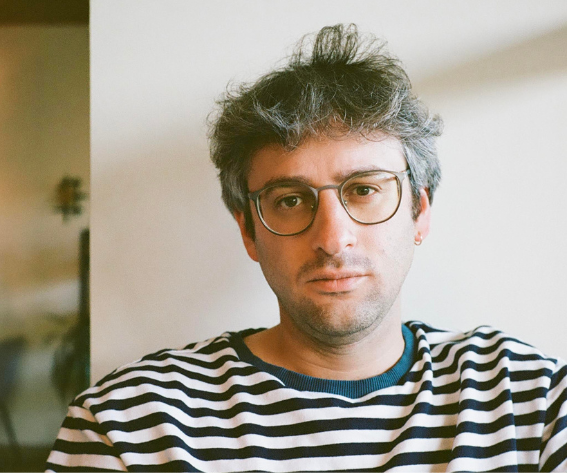We’ve just passed into the new year, and thus had our very last monthly competition of 2017. We had some really wonderful entries in December, so picking the best one was a difficult choice. In the end, however, we settled on Saint Hubert – which means that we’re now having a chat with the Belgian film’s writer and director, Jules Comes.
JL: Jules, congratulations on the win and on making such an impressive film! That’s another trophy in the bag for you, and you’ve been racking up quite a few recently, haven’t you?
Jules: I can not complain. The film has done pretty well so far. In terms of festival selections and prizes, Saint Hubert has been well appreciated. I think this is a great compliment to all the cast, crew and the production team of Saint Hubert. After selections for the Film Festival of Warschau and Leeds Filmfestival we have been selected for another A-list festival, Clermont Ferrand. Of course, all selections and prizes are worthwhile but this one in Clermont-Ferrand next February makes it extra special.
JL: First of all, what’s the story behind the name – Saint Hubert – and how did you come about to exploit it?
Jules: The story is based on an old existing legend whose name was Saint Hubertus or Hubert (c. 656 – 30 May 727). This man was caught by a vision that he had when he was hunting deer in the forest. From this moment on he swore to protect nature and the forest. Later on, he became the patron saint of hunters, mathematicians, opticians, and metalworkers.
I coincidentally found out about this legend and from the first moment, I knew it was the perfect backstory to connect with my main character.
JL: Is this a project that you’ve always wanted to do, or does it originate from a more recent bout of inspiration?
Jules: My last short film (Dit Is Ronald) was a black-satirical film that criticised social life in the suburbs. It had themes of social life, sex, and child-abuse in it. Although it was meant as a black-comedy it was also a pretty heavy film. With Saint Hubert, I wanted to turn it all around. My goal was to start with a really basic, small but strong conflict between two men from two different worlds. My aim was to work with poetic violence and strong bombastic scenes to celebrate this clash of worlds in a beautiful forest.
JL: Your film is set in the East of Belgium. Was it shot there?
Jules: Some parts were shot there but not all of it. We’ve shot in Luxemburg and Germany as well. All in a range of 150 kilometers of the existing village of Saint Hubert.
JL: You’ve made several short films before. What were some key takeaways from these, which you then implemented in the making of Saint Hubert?
Jules: As a filmmaker, I think the most important thing is to discover your own style of storytelling. To find your own personal autograph. But then again I think with every new project you must dare to re-invent yourself and find the right way to tell the story. So I think my previous shorts have typical elements and similarities, but at the same time they really differ in terms of subject, build up, cinematography and the use of sound. And I think that is the way I want to make films in the future.
JL: And, on that last note, what was the most challenging moment or aspect in the production process?
Jules: For this project definitely finding the right locations close by and getting this great cast together.
JL: How effective are films in making us recognise our problematic ways of treating the environment, and in pushing us to do more in order to maintain nature’s balance intact?
Jules: I think, especially in the big cities, we tend to distance ourselves more and more from nature. Here in Brussels, we have a lot of nice parks and green divided over the city but it’s just not the same as wild nature you see in the film. We are more and more used to stones, pavements, and filthy polluting cars. I think the film tries to show the beauty of nature a bit like in the films of David Attenborough. So yes, we should appreciate it more and try to escape the city life once in a while. I think the film tells us clearly the beautiful side of nature and how harmful a bad urban intervention can turn out…
JL: You mentioned that you have been inspired by maestros such as Lars von Trier and Werner Herzog – and this shows in Saint Hubert, particularly in the manner trough which you combine natural frames and music. What do you admire most about these directors?
Jules: The most I like is their sense of authorship in their work. Everyone can recognize the works of von Trier and Herzog. They use cinema to tell their own story, in their own way. In these films, they can bend narrative rules, provocate but above all, take us along on a cinematic ride that grasps us in their universe.
JL: Have you recently been working on other projects as well, or are you planning to do so in the near future?
Jules: At the moment I am working on my fifth and last short film. After this short film that I hope to shoot in 2018, I am planning to start working on a feature film.
JL: Thank you for sharing your thoughts with us, Jules. Congratulations once again – and we hope to see more of your work soon!









Leave a reply